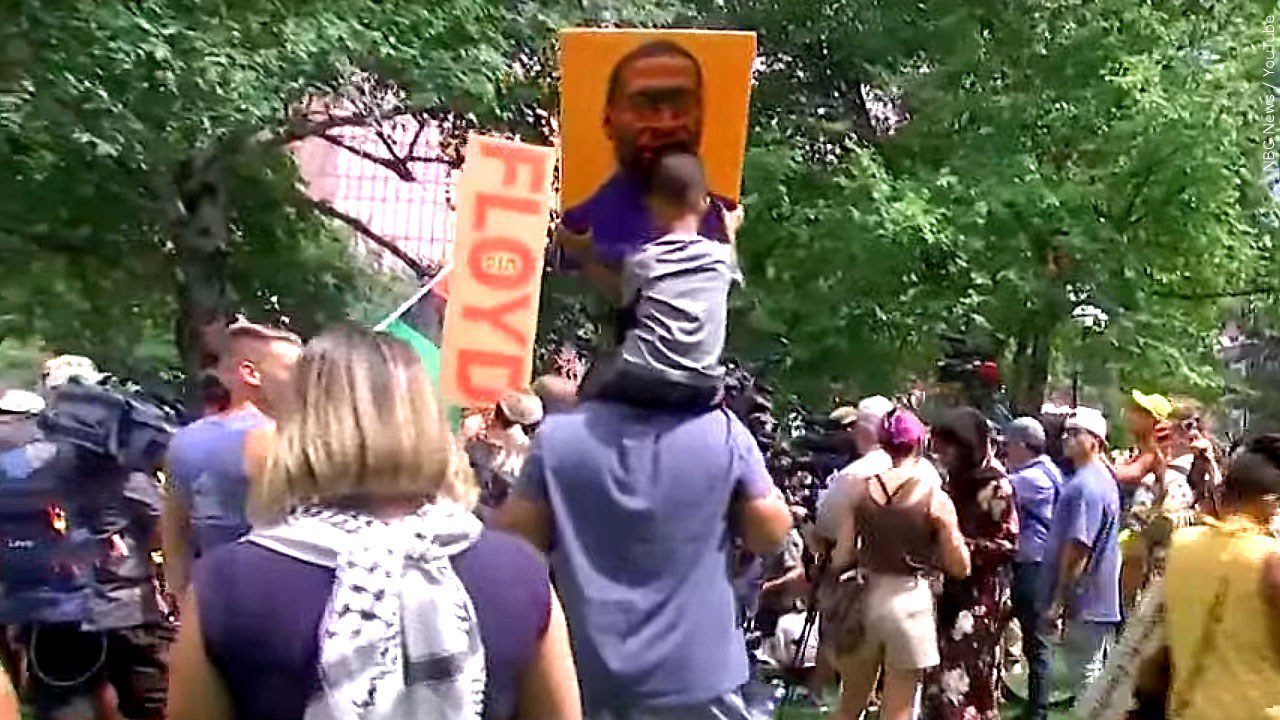Pres. Biden marks three-year anniversary of George Floyd’s murder; calls for police reform legislation

Courtesy: MGN
(ABC 6 News) – Thursday, May 25 marks three years since the killing of George Floyd at the hands of the Minneapolis police.
President Biden on Thursday marked the three-year anniversary of Floyd’s murder with a call for Congress to pass police reform legislation. Pres. Biden’s statement is below.
The day before her father’s funeral, George Floyd’s young daughter Gianna told me, “Daddy changed the world.” Three years after her father’s murder, my answer to Gianna remains the same: he has.
George Floyd’s murder exposed for many what Black and Brown communities have long known and experienced — that we must make a whole of society commitment to ensure that our Nation lives up to its founding promise of fair and impartial justice for all under the law. The injustice on display for the world to see sparked one of the largest civil rights movements in generations — with calls from all corners to acknowledge and address the challenges in our criminal justice system and in our institutions more broadly.
A year ago today, Kamala and I stood next to the family of George Floyd, civil rights leaders, and law enforcement officials to sign my executive order, which applies key elements of the George Floyd Justice in Policing Act to federal law enforcement: banning chokeholds, restricting no-knock warrants, establishing a database for police misconduct, and other measures to advance effective and accountable policing that builds public trust and increases public safety. Across our Administration, we have made significant progress in fulfilling the requirements of my EO, making policing safer, more equitable, and more effective.
But we know that implementing real and lasting change at the state and local levels requires Congress to act. I urge Congress to enact meaningful police reform and send it to my desk. I will sign it. I will continue to do everything in my power to fight for police accountability in Congress, and I remain willing to work with Republicans and Democrats alike on genuine solutions.
Equal justice is a covenant we each have with one another. Today, three years after George Floyd’s murder, let us build on the progress we have made thus far and recommit to the work we must continue to do every day to change hearts and minds as well as laws and policies.
As a Nation, may we ensure that George Floyd’s legacy and the legacy of so many others we also honor every day are not solely about their deaths, but what we do to honor their memory.
President, Joe Biden
The killing of Floyd, who repeatedly told a Minneapolis police officer he couldn’t breathe as the officer knelt on his neck for more than 9 minutes — sparked days of unrest in the Twin Cities and mass protests across the globe over the treatment of Black people by police.
Now, three years to the day since Floyd’s murder, proponents of federal actions — such as banning chokeholds and no-knock warrants, as well as changing the so-called qualified immunity protections for law enforcement — still await signs of change.
RELATED: George Floyd death anniversary: Reckoning with police violence in limbo
In 2020, the George Floyd Justice In Policing Act, a piece of federal legislation, showed some signs of promise. It would ban chokeholds and no-knock warrants, like the one that enabled Louisville police to kill Breonna Taylor. It would also create a database listing officers who were disciplined for gross misconduct, among other measures.
The following year, the House passed it but the Senate failed to reach a consensus. However, in the most recent State of the Union address, President Biden renewed his call on Congress to pass the bill.
Soon after Floyd’s murder, Minneapolis adopted a number of changes, including bans on chokeholds and neck restraints, and requirements that police try to stop fellow officers from using improper force. Minnesota lawmakers approved statewide police accountability packages in 2020 and in 2021, as well as tight restrictions on no-knock warrants just this month.
The city is still awaiting the results of a federal investigation into whether its police have engaged in a “pattern or practice” of unconstitutional or unlawful policing. A similar investigation by the state Department of Human Rights led to what it called a “court-enforceable settlement agreement” in March to revamp policing in the city.
The federal investigation could lead to a similar but separate agreement with the city called a consent decree. Police in several other cities already operate under such oversight for civil rights violations.
Activists say that Minneapolis has started to make critical changes, but that the work necessary to transform policing must continue.
Derek Chauvin, the officer who killed Floyd, and the three other officers who failed to stop Chauvin at the scene, are all in prison. Chauvin was sentenced in state court to 22 1/2 years for second-degree murder. Two of the three other officers pleaded guilty to aiding and abetting manslaughter and received shorter terms, while the third officer was convicted of that count by a judge and awaits sentencing.
Chauvin also pleaded guilty to a federal civil rights charge, admitting that keeping his knee on Floyd’s neck resulted in his death. In that case, he received a concurrent sentence of 21 years. The three others were also convicted of violating Floyd’s rights and got much shorter sentences.
The Associated Press contributed to this story.